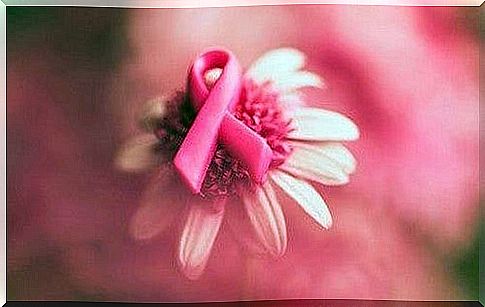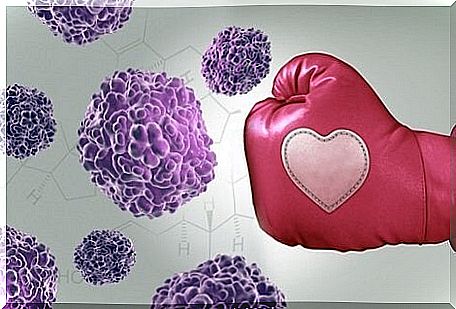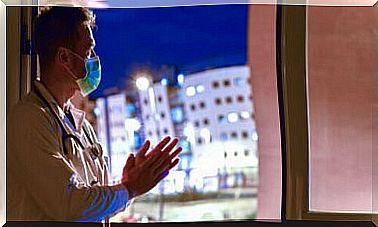Breast Cancer: Together We Can

Every breast cancer is different, both on a molecular and emotional level. Some will be more invasive and some less. However, on this difficult and arduous journey, the least important thing is to be left without hair or with a scar from an absent breast, where an immense love still lives. The best thing is to be alive and face the challenge, knowing that together, we can.
Science, as we well know, surprises us daily with new and hopeful news in the field of cancer medicine. Treatments are becoming more and more precise, such as immunotherapy, in which we “train” our body so that an antibody guides the immune system in order to fight malignant cells without damaging healthy tissue.
Medicine becomes more refined and less invasive, to be sure, but breast cancer diagnoses occur daily. The truth is that, today, according to data from the World Cancer Research Fund , it remains the most common among women. While it’s true that death rates decrease every year, it’s inevitable to realize the social and emotional impact this disease continues to have.
Each of these women has a first and last name, a history of their own and a cancer with a particular biological profile. However, they are all united by fear and unavoidable anguish. All these exceptional women are forced to embark on a particular and tremendously difficult journey, for which no one, absolutely no one, is prepared.
But yes, the vast majority of them overcome all this through a transformative journey, to become our best inspiration. A reflection of the most real hope to show us that, in fact, together we can do anything.

breast cancer, proud of my scars
Álvaro Rodríguez-Lescure, vice president of the Spanish Society of Medical Oncology (SEOM), indicates that breast cancer is still the most diagnosed one today. It should be noted, however, that there are countries where lung cancer is already among the types of highest female mortality. Smoking and its serious effects are undoubtedly taking advantage of this sector of the population, and this is something that deserves our attention.
However, despite the fact that the breast cancer survival rate is already showing more encouraging numbers, the question of “why me” still remains . The University of Western Australia conducted a study in 2014 that discussed the attributions that women used to make about this disease, showing that much of it related to genetic history and lifestyle habits.
However, clinical studies explain that only 5 to 10% of breast cancers are related to an inherited genetic mutation, related to the BRCA1 or BRCA2 gene . It is clear that there are some factors that increase the risk of developing this disease, but we must assume that (at least so far) it is still not possible to prevent it 100%.
Most importantly, the most needed strategy is to be able to detect it in the early stages through mammograms.
a woman, a story
One of the most significant milestones in the field of oncology was discovering and understanding the heterogeneity of breast cancer. Each subtype needs a specific and differentiated treatment. Thus, there will be women with more or less invasive interventions, with more or less cycles of chemotherapy and radiotherapy and, later, with a certain number of years following treatment with tamoxifen or another complementary medicine.
In addition to the medical history, there is the personal history. There are very young women who see their lives interrupted overnight. There are others who are diagnosed during pregnancy. Many of them refuse to take a long break from their professional lives and continue to go out into the world with their handkerchiefs, their scars and pending visits to chemotherapy rooms.
A part of these women would also like to be warriors and brave fighters, but they cannot. Metastatic or recurrent breast cancer does not always leave room for a win. There will be moments of remission and moments of sudden advance, but the stage IV diagnosis is grim. Thus, their stories are different, more delicate, even more admirable.

Survival is a transformative journey where scars are left.
Breast cancer has multiple scars that are not seen or appreciated. We don’t talk about the wound that sometimes delimits the space of an empty chest. We spoke, first of all, of the marks that every woman who survives cancer bears in silence.
- Often, there is the permanent fear of a recurrence.
- After undergoing radiation therapy, hormone therapy, chemotherapy or surgery, it is common for a woman’s libido to be reduced. Many are also forced to accept their new image, opening up to them a period in which they need support, both social and professional.
- Also, many breast cancer surgeries involve the removal of lymph nodes. Something like this has serious long-term effects, such as lymphedema. It is an accumulation of fluid in this area, where inflammation, pain and reduced mobility also appear. This can make simple tasks like combing your hair or carrying weight difficult.

Thus, it is necessary to understand that when a woman overcomes breast cancer, her journey continues. This transformative journey takes place every day, overcoming every fear, dealing with the aftereffects, taking care of yourself, caring for others and even supporting more women in the same situation.
Together we can. Breast cancer changes life, but it doesn’t stop it, because when we have a lot to live for, even scars help us to be stronger.









